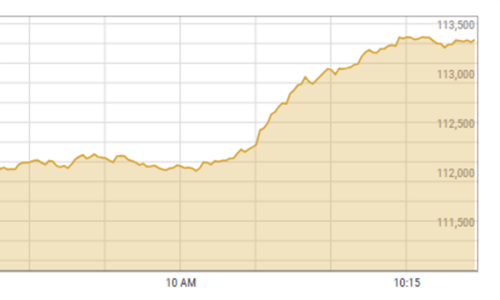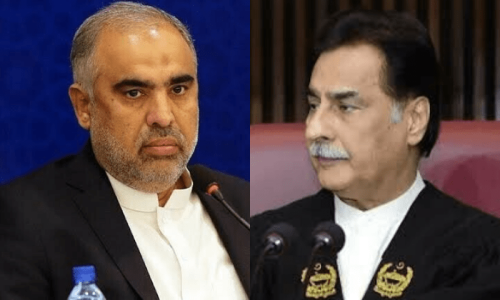PESHAWAR: A senior Afghan Taliban figure and acting minister was killed in a suicide bombing near his office in Kabul on Wednesday, the self-declared Islamic Emirate of Afghanistan (IEA) confirmed.

Khalilur Rehman Haqqani, the Afghan Taliban’s acting minister for refugees, was targeted outside a mosque close to his office. Unconfirmed reports suggested at least six others were also killed in the attack.
Mr Haqqani was the brother of Jalaluddin Haqqani, founder of the Haqqani Network, and the uncle of Sirajuddin Haqqani, the current acting interior minister.
An official photograph released by the IEA showed Khalil Haqqani attending an Economic Commission meeting chaired by Mullah Abdul Ghani Baradar. Mr Haqqani was returning from prayers to his office when the attack occurred, reports said.
Taliban blame IS for assassination
The Afghan Taliban later released a photo of the suspected bomber, but did not disclose further details about his identity.
“The head of our family, elder and minister for refugees, Alhaj Khalilur Rehman Haqqani, has attained the highest place of martyrdom,” Anas Haqqani, nephew of the slain minister, wrote on the social media platform X.
Khalil Haqqani, who was 58, is the highest-ranking Taliban official to be killed in such an attack since the group took control of Kabul in August 2021. The last senior Taliban figure killed in a suicide bombing was Daud Muzammil, governor of Balkh province, in March 2023.
A veteran of the Afghan “jihad”, Khalil Haqqani fought alongside his elder brother Jalaluddin against the Soviet forces and later led insurgencies against US forces and the Afghan republic governments of Hamid Karzai and Ashraf Ghani.
The US Treasury designated him as a “Specially Designated Global Terrorist” in 2011, while the State Department offered a $5 million reward for information leading to his arrest.
‘Pragmatic faction’
The Haqqanis are also said to be engaged in a struggle for influence within the Afghan Taliban authorities.
According to press reports, they are pitted as a pragmatic faction up against supporters of the severe interpretation of Islamic law in line with the Taliban’s supreme leader based in Kandahar.
No group immediately claimed responsibility for the attack, though the Afghan Taliban accused the regional chapter of IS, known as the militant Islamic State Khorasan (ISK) group, of orchestrating the assassination.
ISK, which previously claimed responsibility for the killing of Daud Muzammil, did not immediately issue a statement on Mr Haqqani’s death. However, social media reports suggested members of the group were celebrating his death.
The Afghan Taliban have waged an aggressive campaign against ISK across Afghanistan, inflicting significant losses on the group, but ISK has been able to launch surprise attacks every now and then.
Several senior Taliban leaders have been killed since their return to power, including provincial governors, commanders and clerics, mostly in attacks claimed by IS.
Violence has waned in Afghanistan since the Taliban forces took over the country in 2021, ending their war against US-led Nato coalition forces.
However, ISK is active in Afghanistan and has regularly targeted civilians, foreigners and Taliban officials with gun and bomb attacks.
In Kabul, explosions regularly echo through the city, but while local sources report them, they are rarely confirmed by the Taliban authorities.
At the end of October, a child was killed and about 10 people were wounded in a bomb attack on a downtown market.
In November, IS claimed responsibility for a gun attack that left 10 people dead at a sufi shrine in northern Baghlan province.
Published in Dawn, December 12th, 2024












































Dear visitor, the comments section is undergoing an overhaul and will return soon.